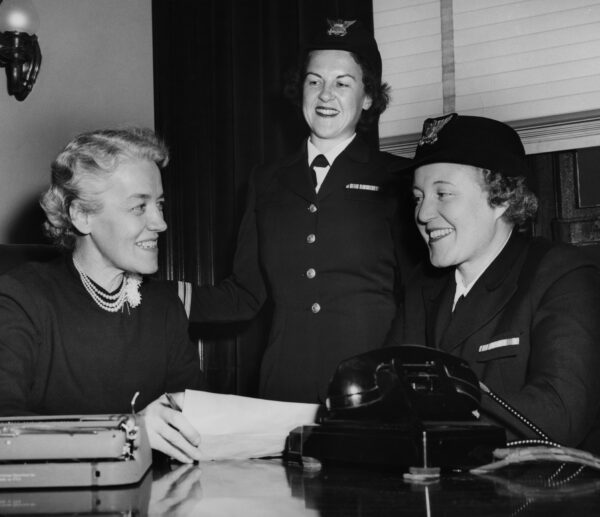This article was republished with permission from WTOP’s news partners at Maryland Matters. Sign up for Maryland Matters’ free email subscription today.

This content was republished with permission from WTOP’s news partners at Maryland Matters. Sign up for Maryland Matters’ free email subscription today.
The first woman joined Congress more than a century ago, but not until this month have any of the 540 rooms in the U.S. Capitol been officially named for women who served in the U.S. Senate.
Following a dedication ceremony last week, Margaret Chase Smith of Maine, the first woman elected to both chambers of Congress, and Barbara A. Mikulski of Maryland, the longest-serving woman in Congress, both had their names added above rooms on the first floor of the Capitol building.

Mikulski, currently a professor of public policy and adviser to Johns Hopkins University President Ronald J. Daniels, was on hand last week for the formal dedication of her room.
“My genuine thanks for doing this, because I know this is truly a very huge honor,” Mikulski said. “I would hope that when people see these two rooms … that they are inspired today about service, about duty, about respect for the Constitution and for each other.”
The U.S. Senate approved a resolution in December 2020 to name S-124 for Smith and S-115 for Mikulski.
The resolution noted that Mukulski, first elected to the Baltimore City Council in 1971 before joining the U.S. House in 1977 and the U.S. Senate a decade later, “mentored other female Senators as the Dean of the Women Senators and fostered bipartisan cooperation and friendship amongst the women of the Senate.”
Her official Senate biography notes that Mikulski “championed the Lilly Ledbetter Fair Pay Act, helped establish the Office of Research on Women’s Health at the National Institutes of Health, worked to expand access to higher education and protect the final resources of the nation’s seniors, and supported investments in research and innovation, including the Hubble Space Telescope.”

Smith was first elected to the U.S. House in 1940, becoming the first woman to represent Maine in Congress.
One of her many legislative achievements was passing the Women’s Armed Forces Integration Act in 1948, ending the practice of classifying women as volunteers for the military and not providing them with any benefits.
During her 24-year career in the Senate, Smith became the first woman to hold a leadership position after becoming chair of the Republican Conference and the first woman to hold the role of ranking member on the Armed Services Committee.
According to her official House biography, Smith’s “defining moment in the U.S. Senate came on June 1, 1950, when she took the Senate Floor to denounce the investigatory tactics of the redbaiting Wisconsin Senator Joseph Raymond McCarthy.”
Smith said during the speech that Republicans had “debased” the chamber “through the selfish political exploitation of fear, bigotry, ignorance and intolerance.”
“The American people are sick and tired of being afraid to speak their minds lest they be politically smeared as ‘Communists’ or ‘Fascists’ by their opponents,” she continued.
The resolution establishing a room to honor Smith said that she “championed legislation and policies for women in the military throughout her Senate career and served as a role model to countless women seeking elective office and careers in public service.”
The first room named for a female U.S. House member was dedicated to Lindy Claiborne Boggs of Louisiana in 1991.
“Today, it serves as a gathering place for Congresswomen, as well as a place for rest and refreshment, with its walls lined with photographs of each Congresswoman who served in the House,” according to the U.S. House website.








